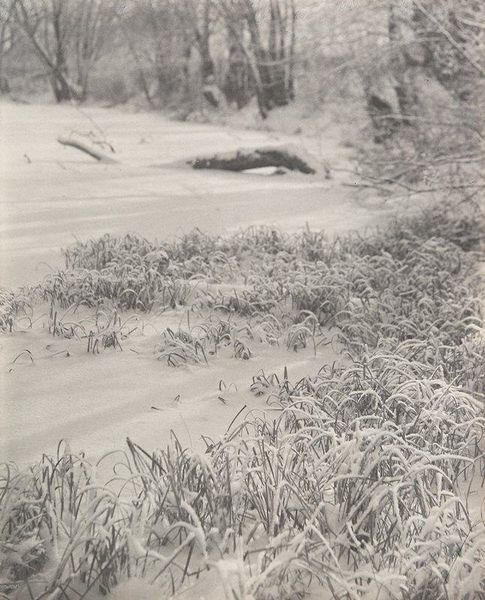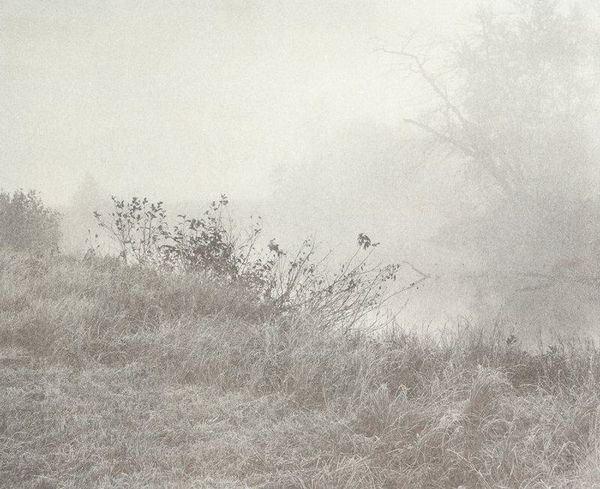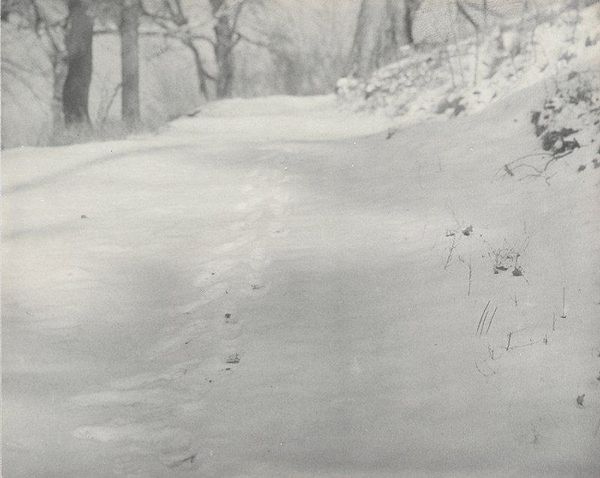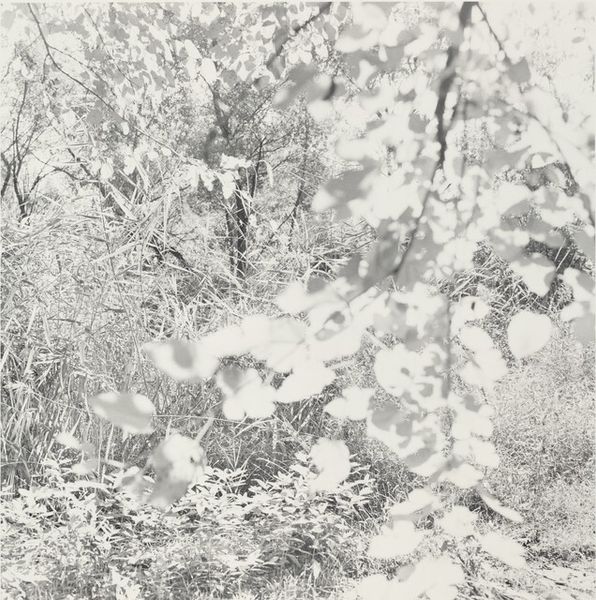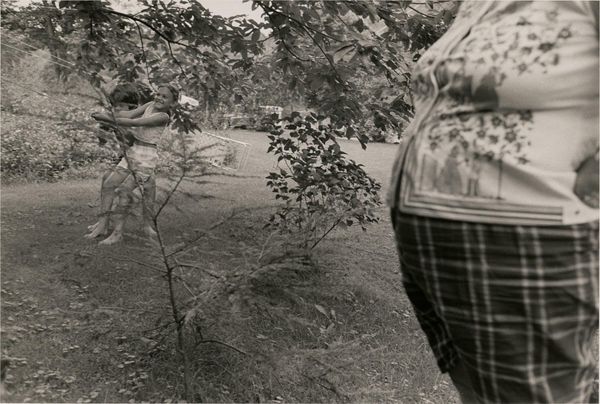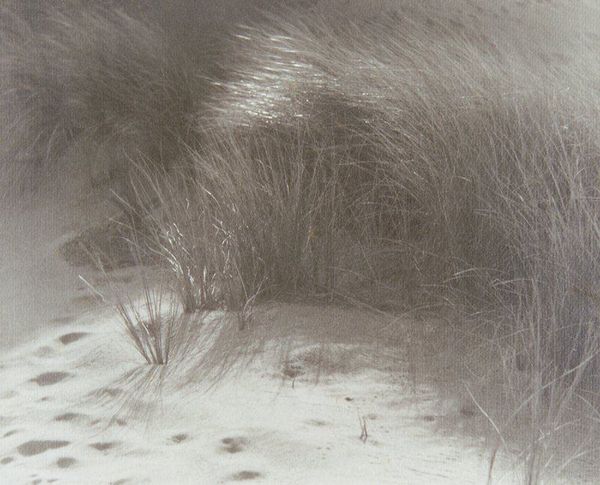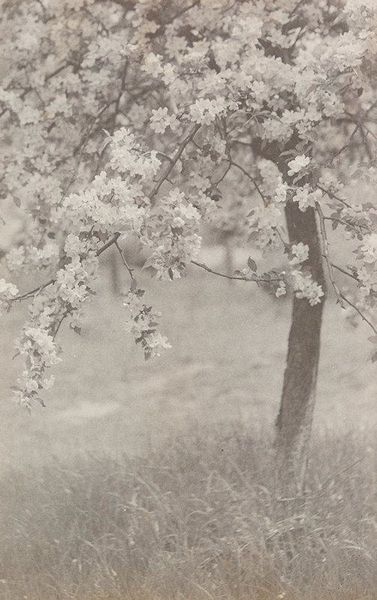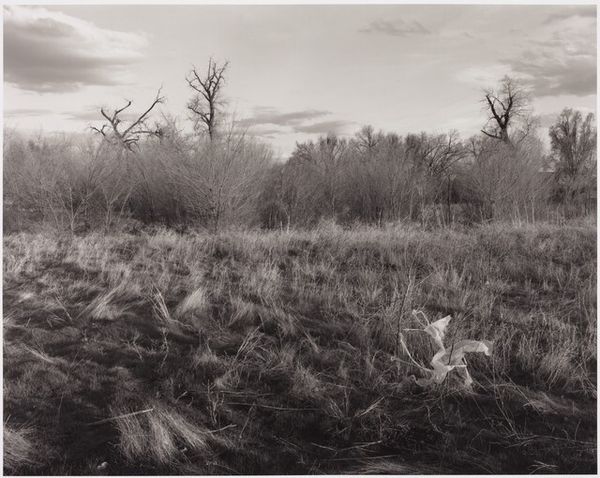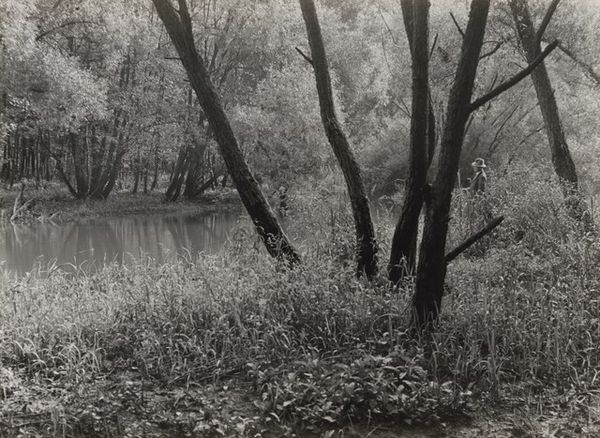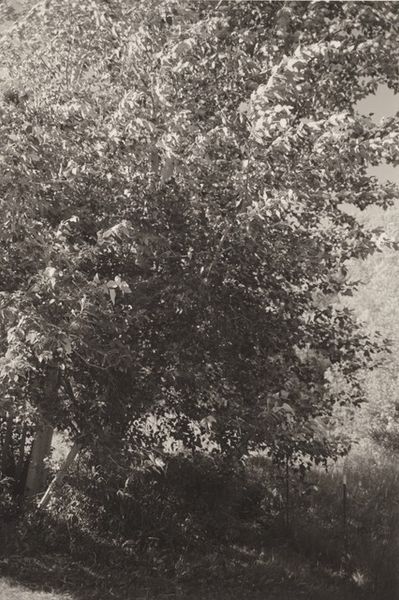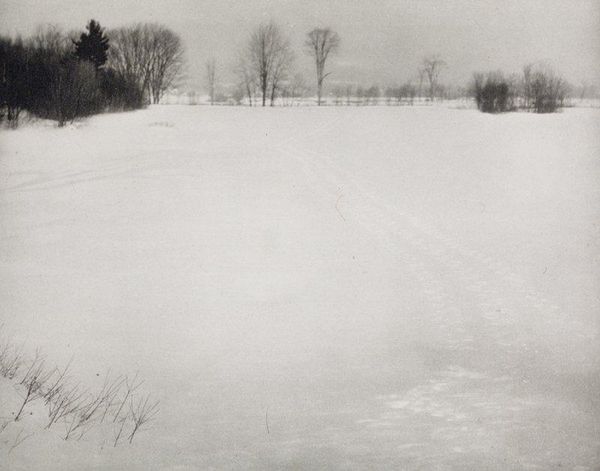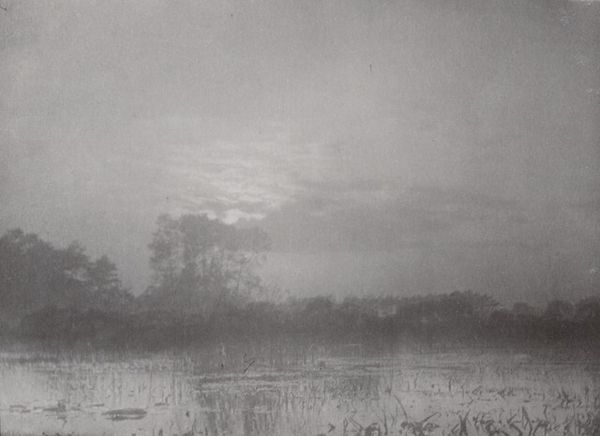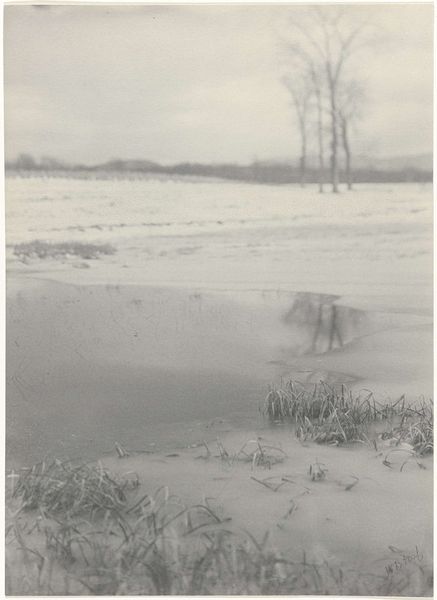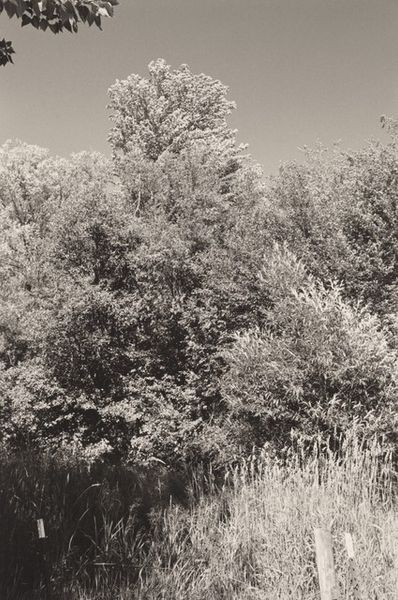![Untitled [Snow and Grasses] by William B. Post](/_next/image?url=https%3A%2F%2Fd2w8kbdekdi1gv.cloudfront.net%2FeyJidWNrZXQiOiAiYXJ0ZXJhLWltYWdlcy1idWNrZXQiLCAia2V5IjogImFydHdvcmtzLzI1OTA3Y2NkLTFmZjctNDg4NC04NGE4LTNhZWVmNmM0OTdkZi8yNTkwN2NjZC0xZmY3LTQ4ODQtODRhOC0zYWVlZjZjNDk3ZGZfZnVsbC5qcGciLCAiZWRpdHMiOiB7InJlc2l6ZSI6IHsid2lkdGgiOiAxOTIwLCAiaGVpZ2h0IjogMTkyMCwgImZpdCI6ICJpbnNpZGUifX19&w=1920&q=75)
plein-air, photography, gelatin-silver-print
#
cloudy
#
still-life-photography
#
natural shape and form
#
natural formation
#
snowscape
#
nieve
#
countryside
#
impressionism
#
plein-air
#
landscape
#
photography
#
low atmospheric-weather contrast
#
gelatin-silver-print
#
monochrome photography
#
fog
#
united-states
#
naturalism
#
monochrome
#
shadow overcast
Dimensions: 7 7/16 x 9 1/16 in. (18.89 x 23.02 cm) (image)7 7/16 x 9 1/4 in. (18.89 x 23.5 cm) (sheet)
Copyright: No Copyright - United States
Curator: William B. Post's "Untitled [Snow and Grasses]," a gelatin silver print, draws us into a hushed, wintry landscape. It's from the late 19th to early 20th century, shrouded in mist or soft snow. Editor: Ethereal is the first word that springs to mind. The lack of contrast almost dissolves the subject matter; it's barely there, like a fleeting memory. It looks quite…quiet. Curator: The composition certainly contributes. The eye navigates from detailed foreground grasses towards a distant, softened background. The monochromatic palette flattens the scene. Editor: True. But consider what's lost in its subtleties. Is it about bareness? Or perhaps a deceptive surface concealing underlying complexity. The formal simplicity belies a richer textural conversation. What are your thoughts? Curator: Definitely bareness—it’s a stillness akin to a Japanese ink wash, but with the tactile reality only photography can truly grasp. Post was likely working en plein air, directly responding to nature. Think about the breath of a landscape suspended. There's that sense that Post captured light as much as objects. Editor: Ah, I see, a synthesis of seeing and feeling! Though I feel impelled to probe the construction –the near-abstract qualities are fascinating, nearly eliminating the traditional depth of field. How fascinating to examine the flatness. Curator: I am glad you noticed! But it is also about the feelings conjured – this liminal moment, that very intersection of seasons—it speaks to the cyclical nature of life and landscape. And who doesn’t feel poetic about freshly fallen snow! Editor: Poetic, agreed, in a quietly disorienting manner. So much is felt and left unsaid and unseen…almost, as if reality had shed a layer to reveal its essential forms. Well put about the artist grasping the feeling—I would otherwise argue that there’s a great structural composition happening with an interplay between depth, lack of contrast, light and feeling. Curator: It's these unseen aspects that allow photography like this to transcend mere documentation and, for me, capture an emotional state of being. I suppose. Editor: Yes, a beautiful paradox indeed! Something to keep with us as we go forth and think more about the dialogue between structuralism and emotion within artwork such as this!
Comments
No comments
Be the first to comment and join the conversation on the ultimate creative platform.
